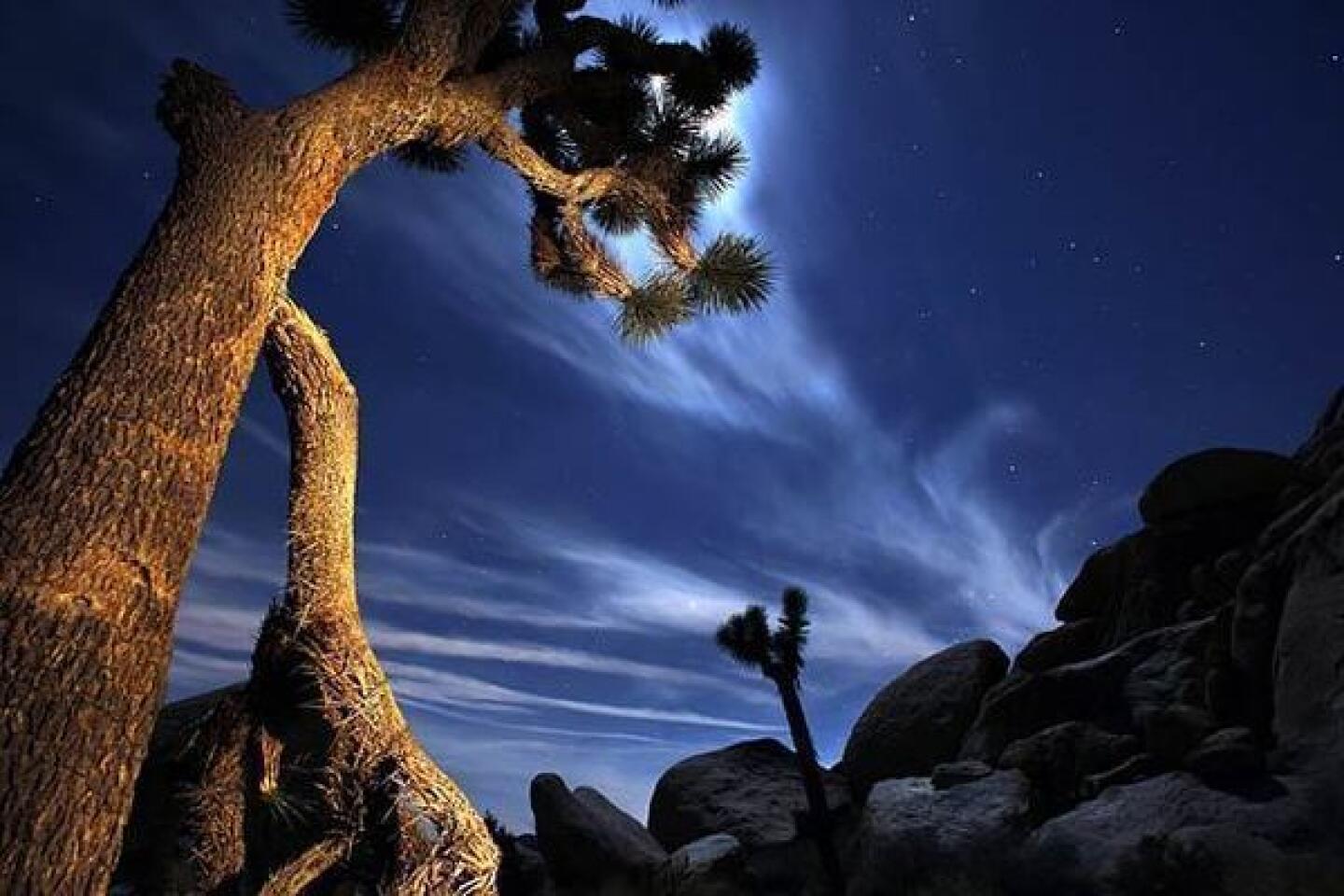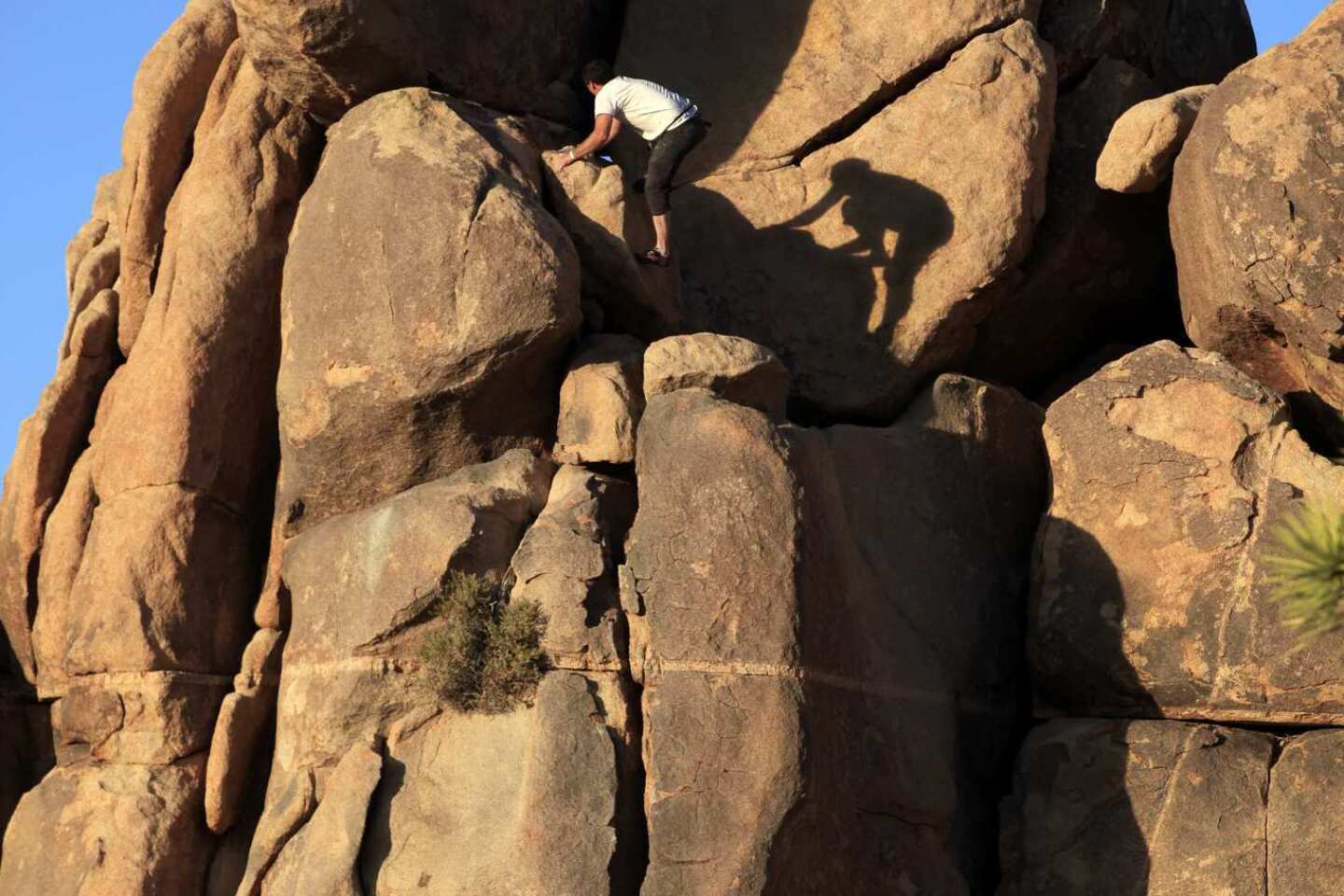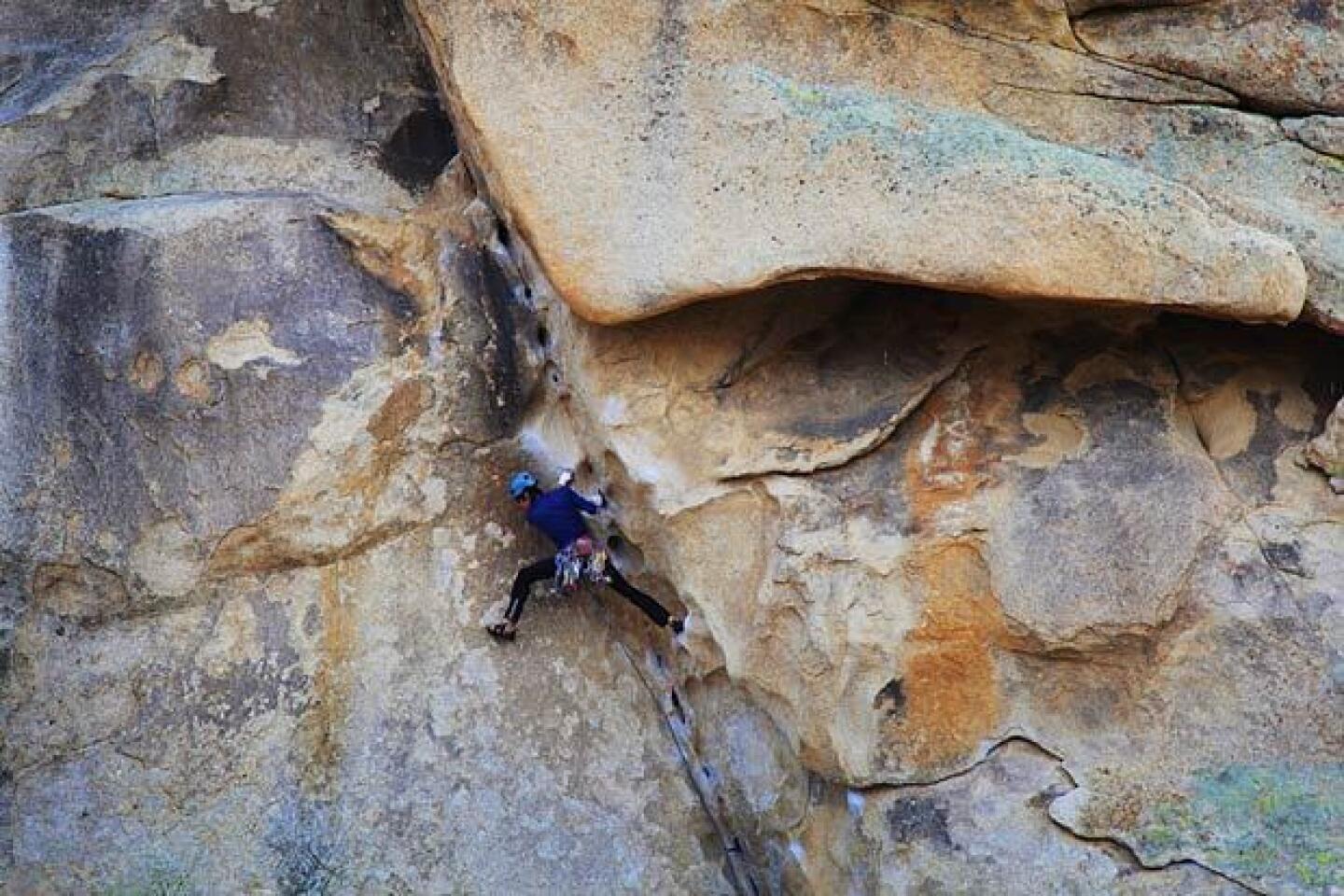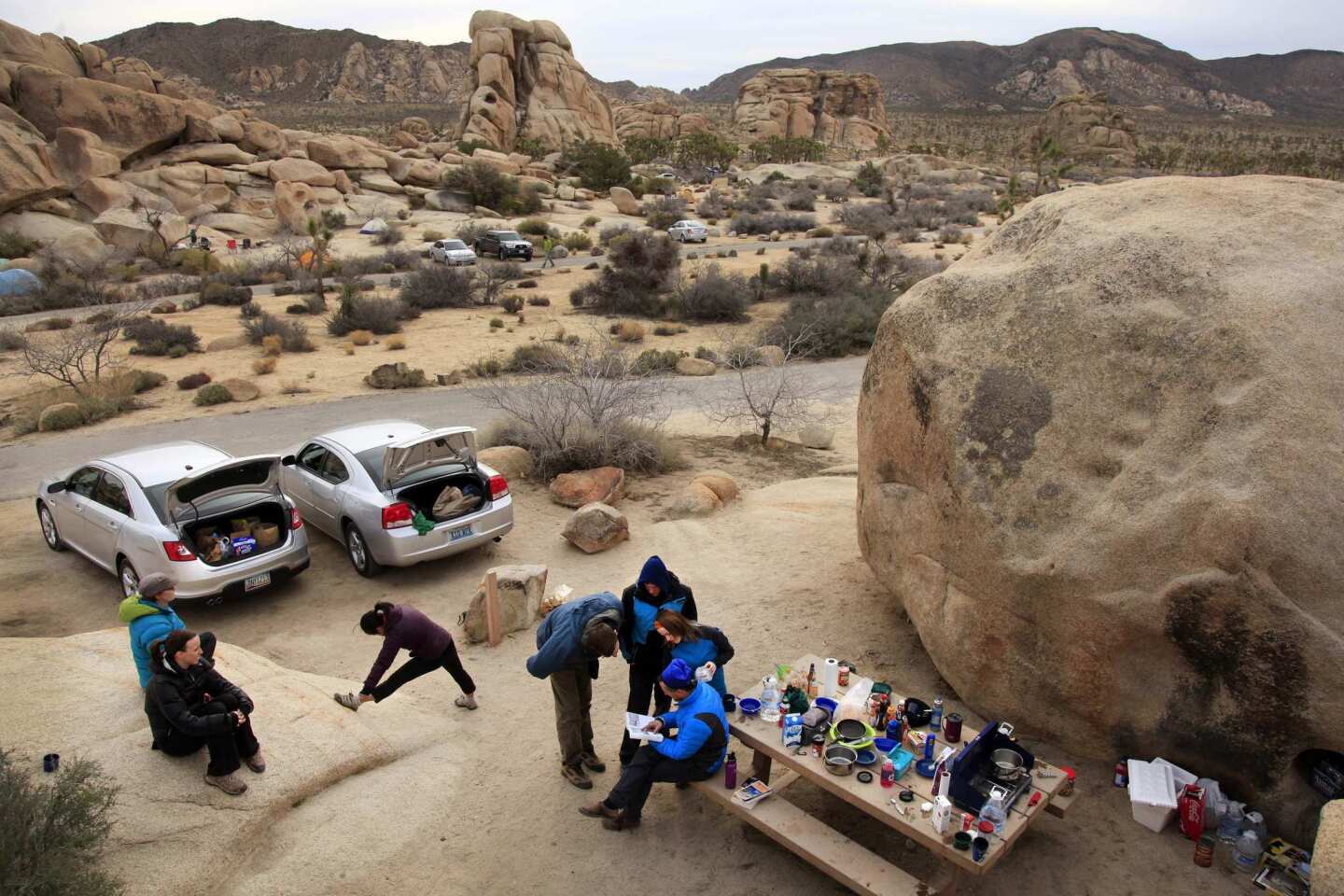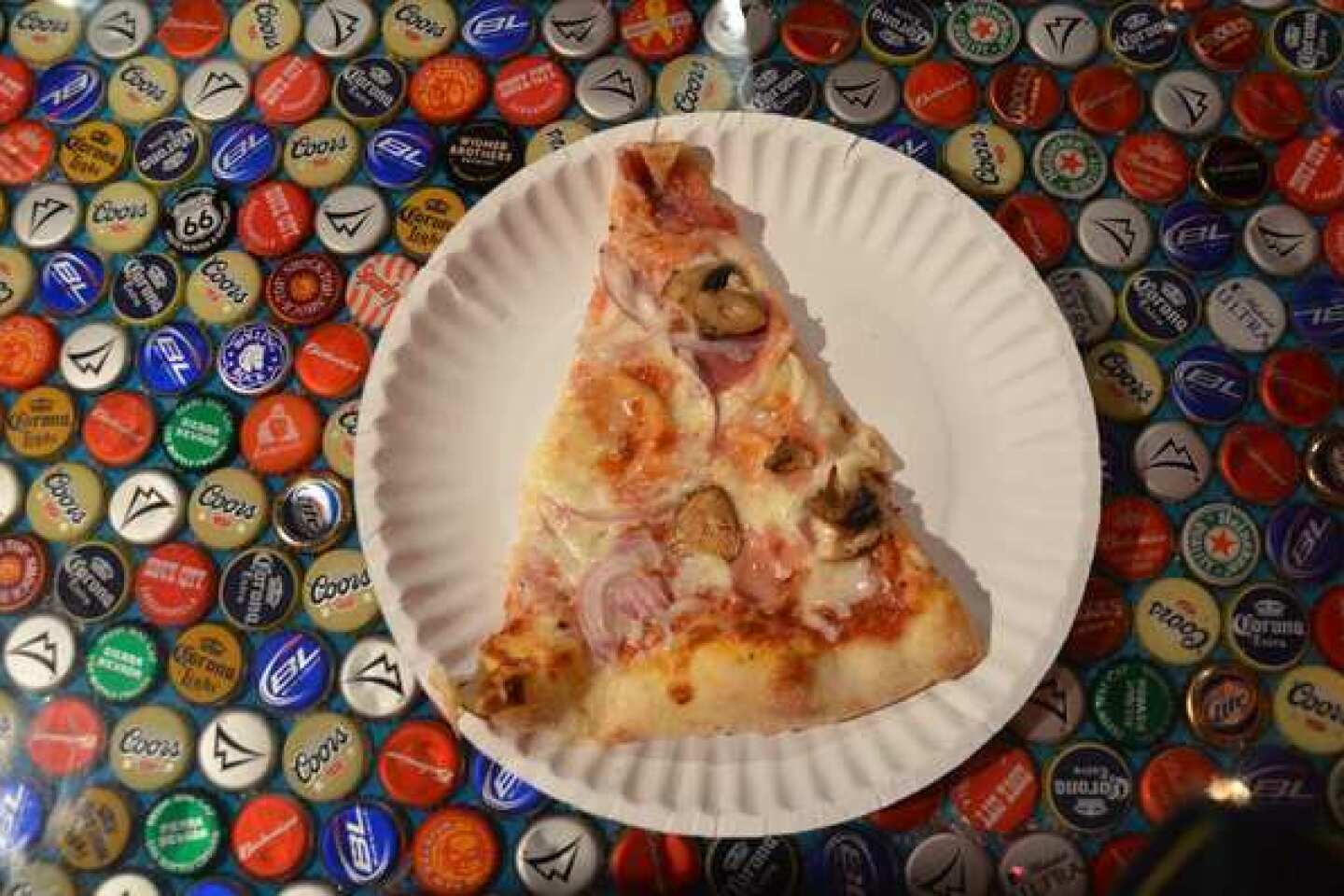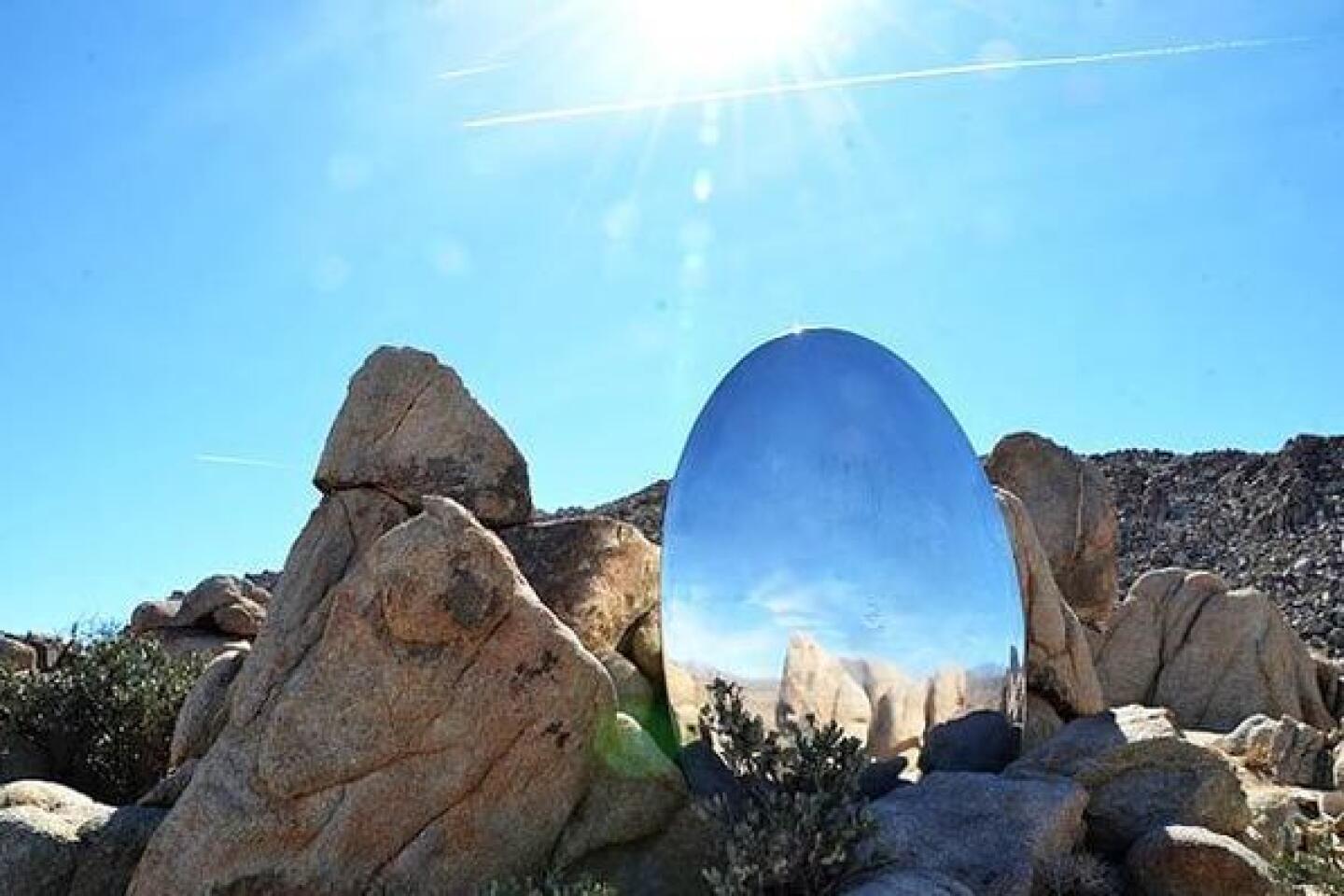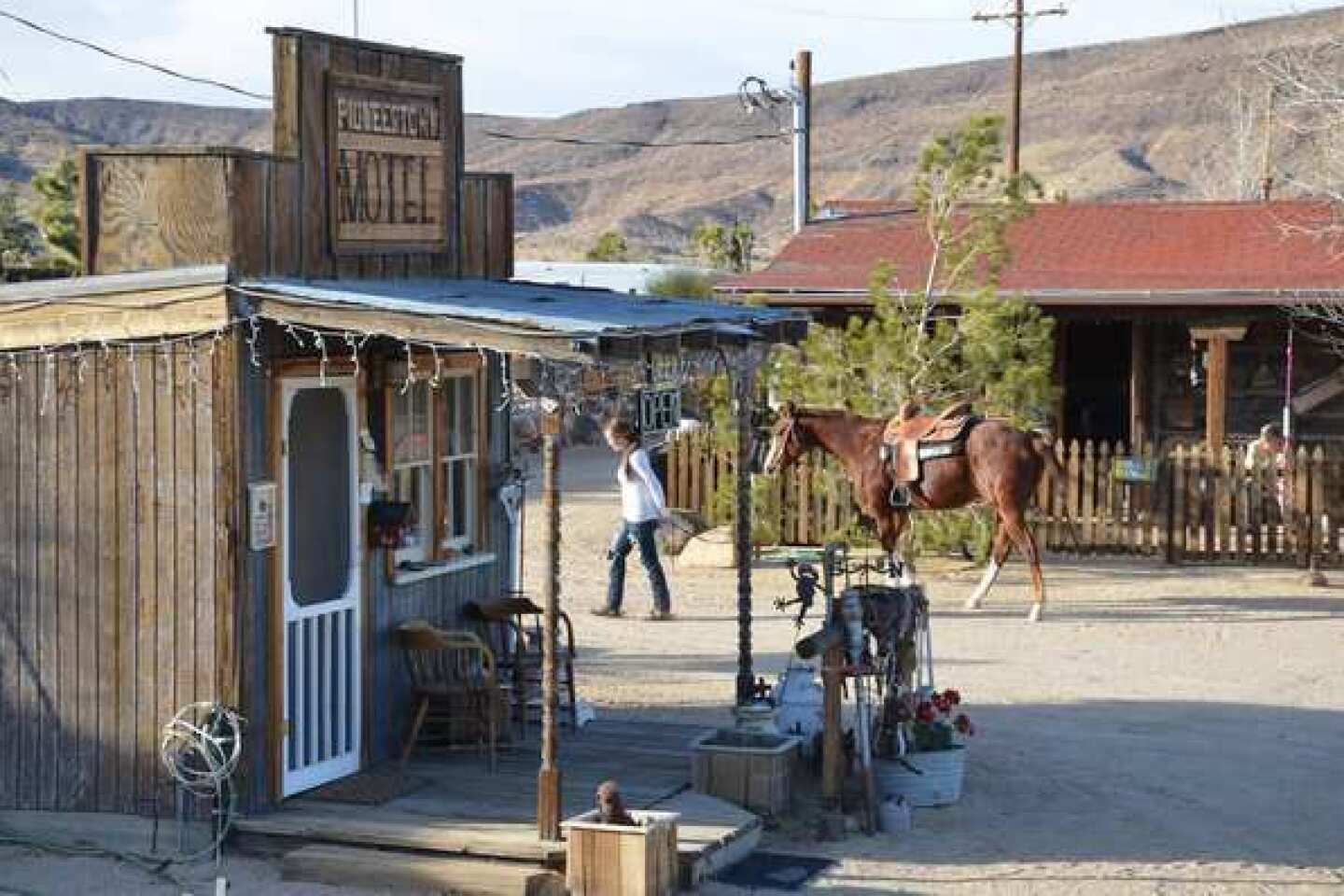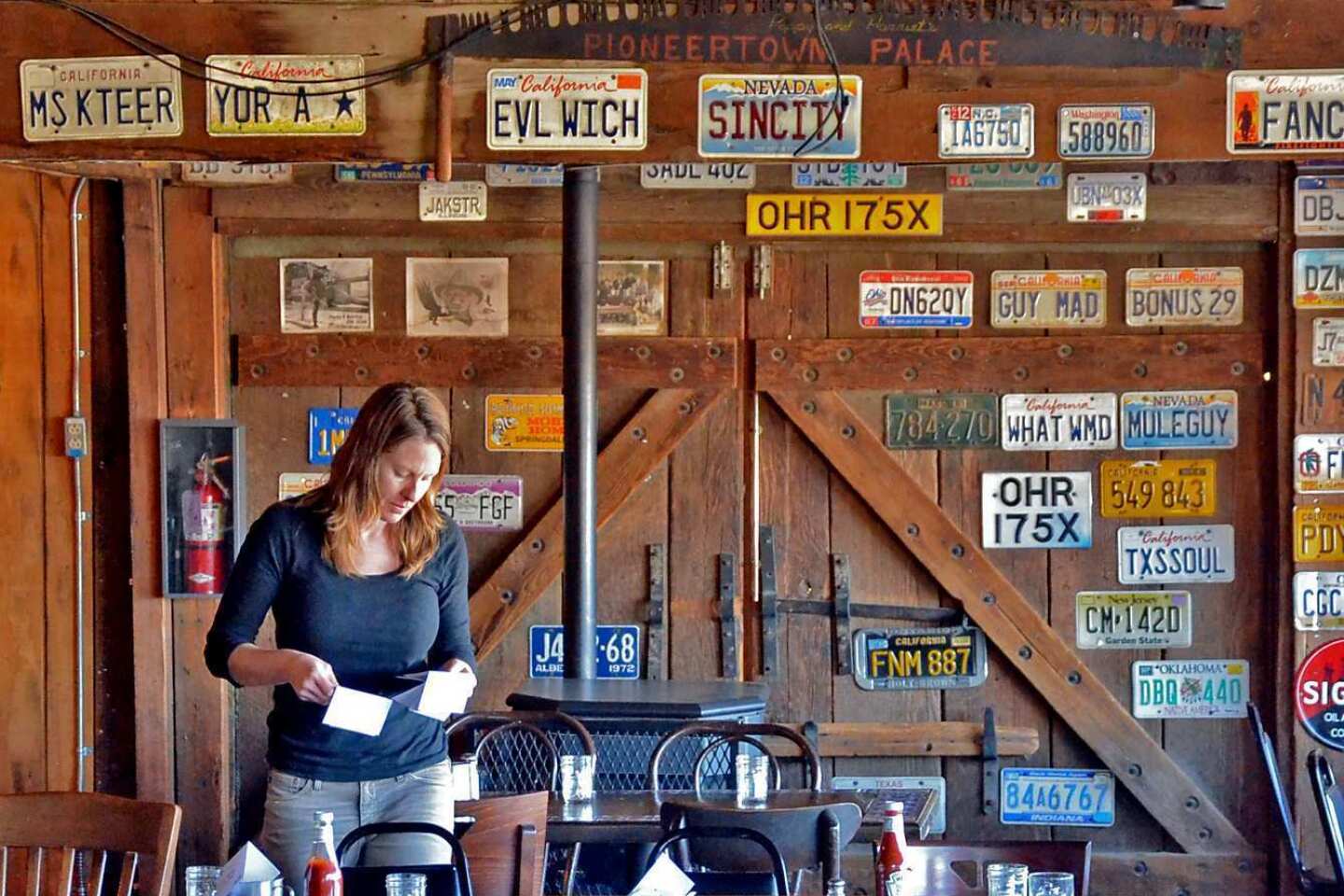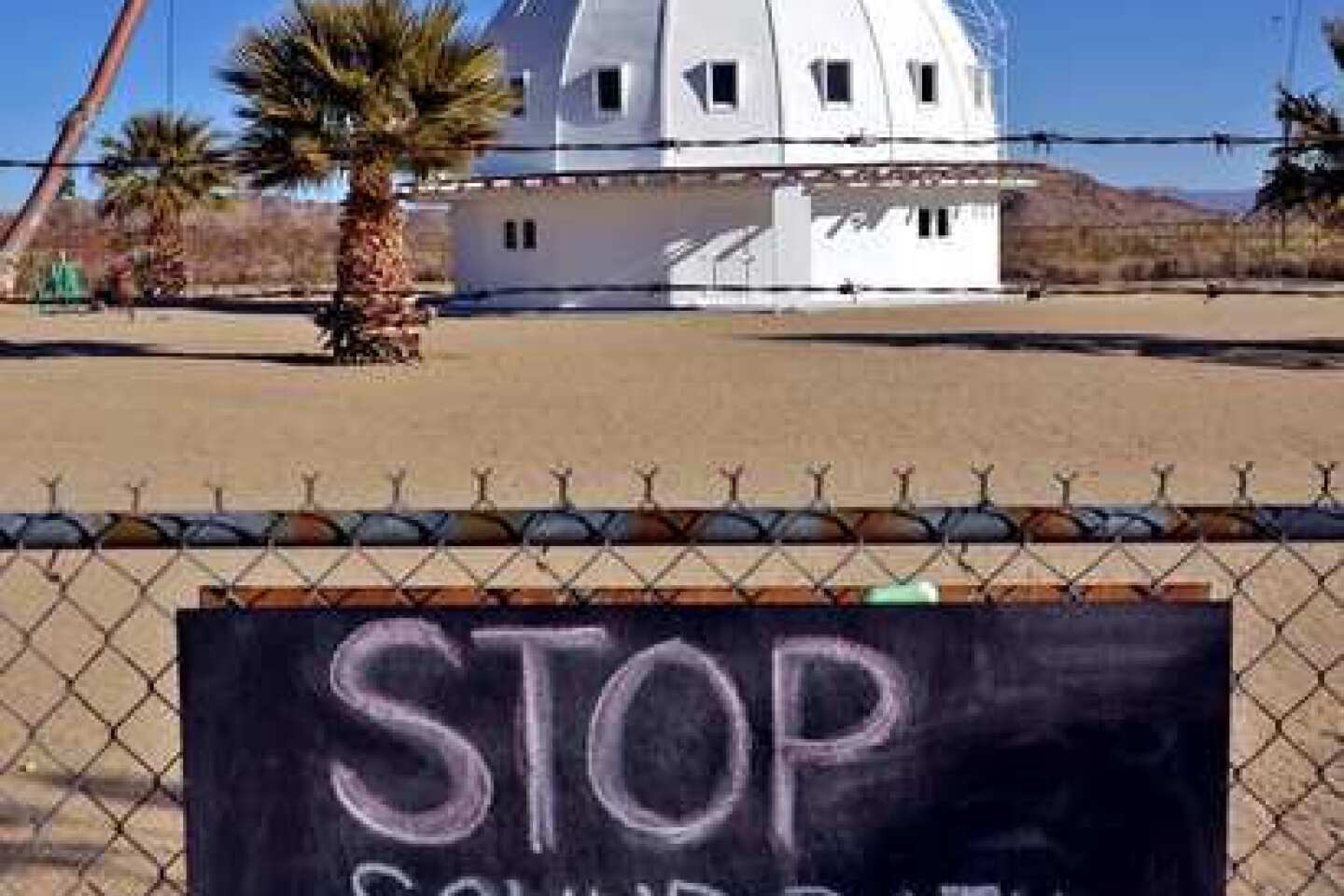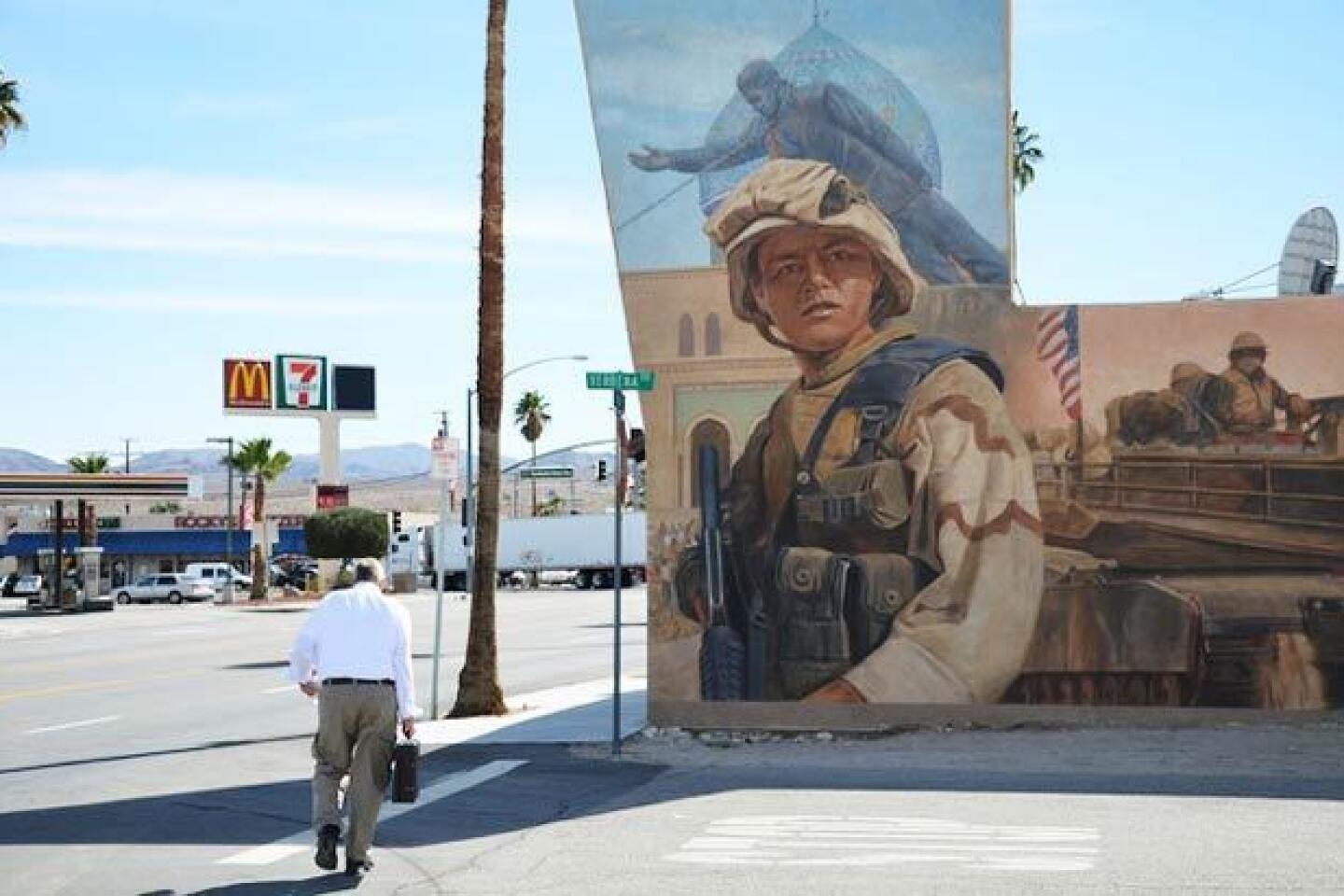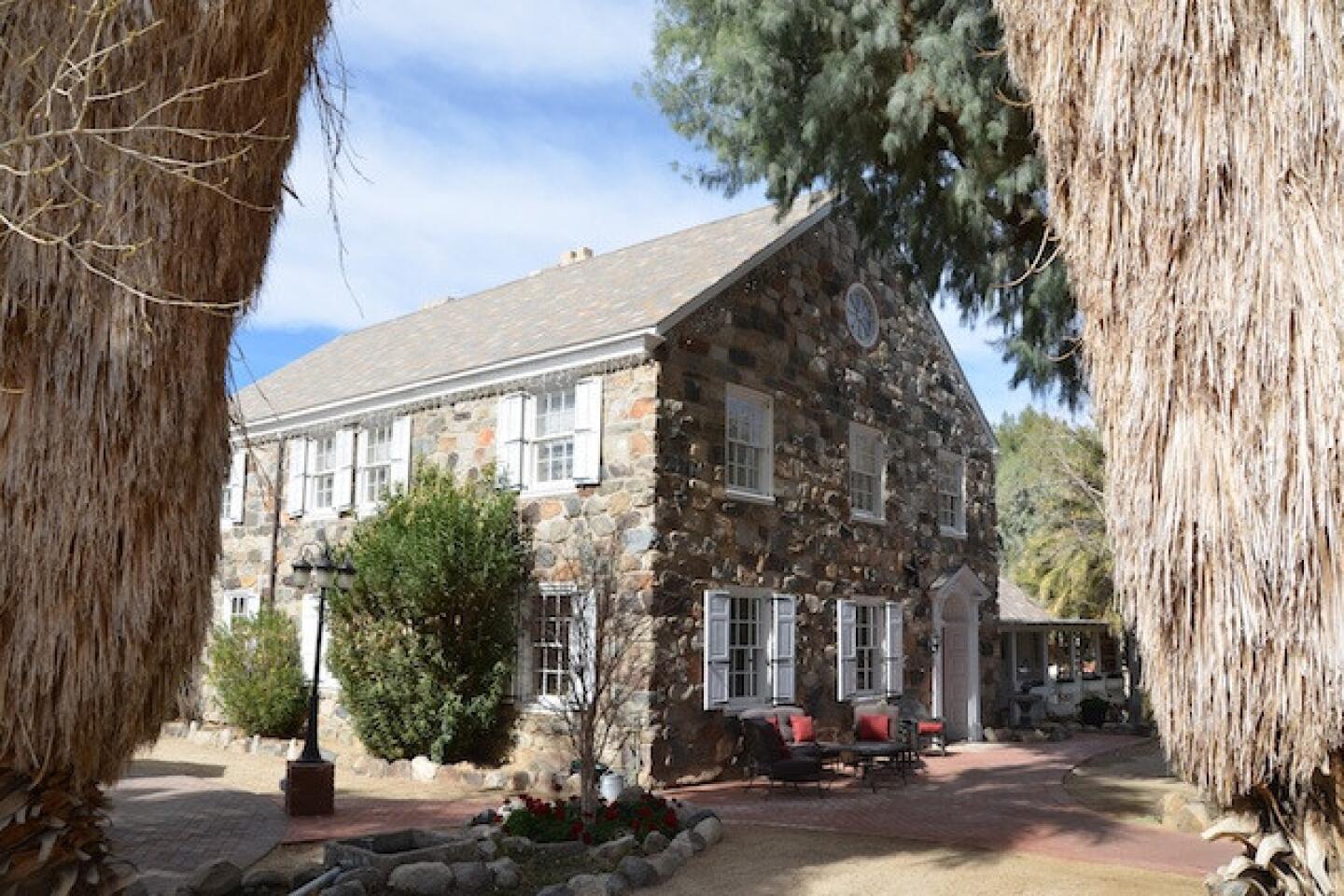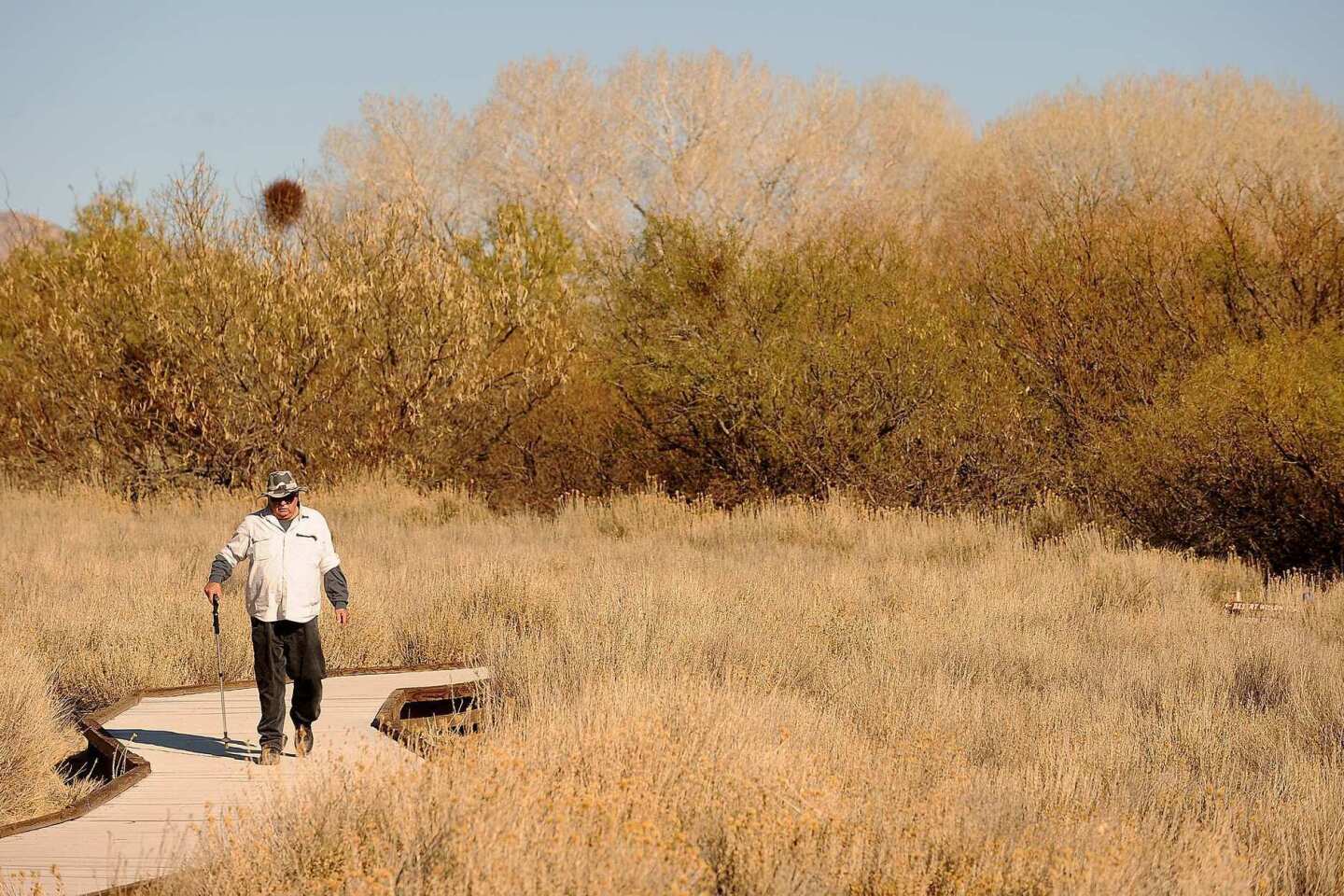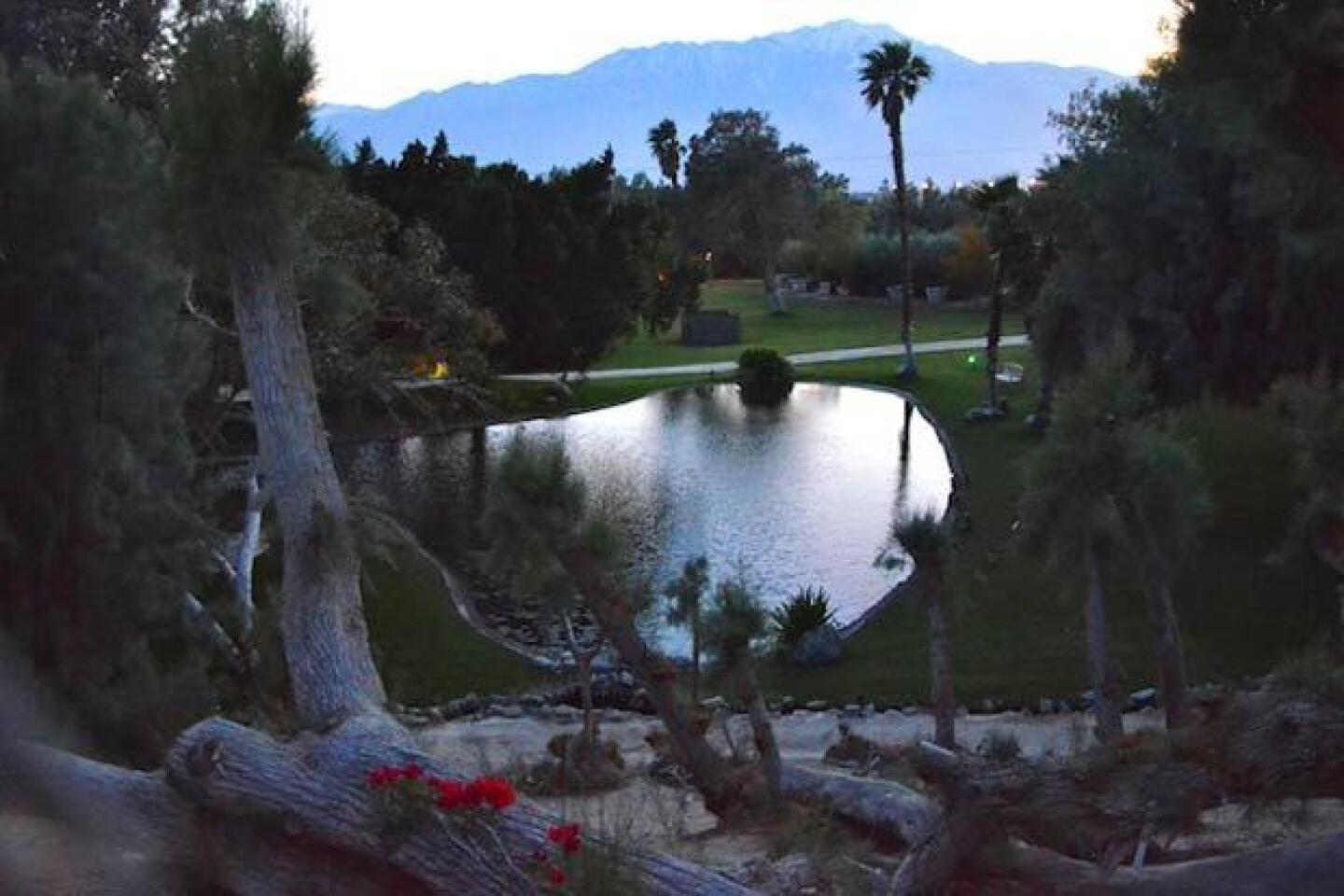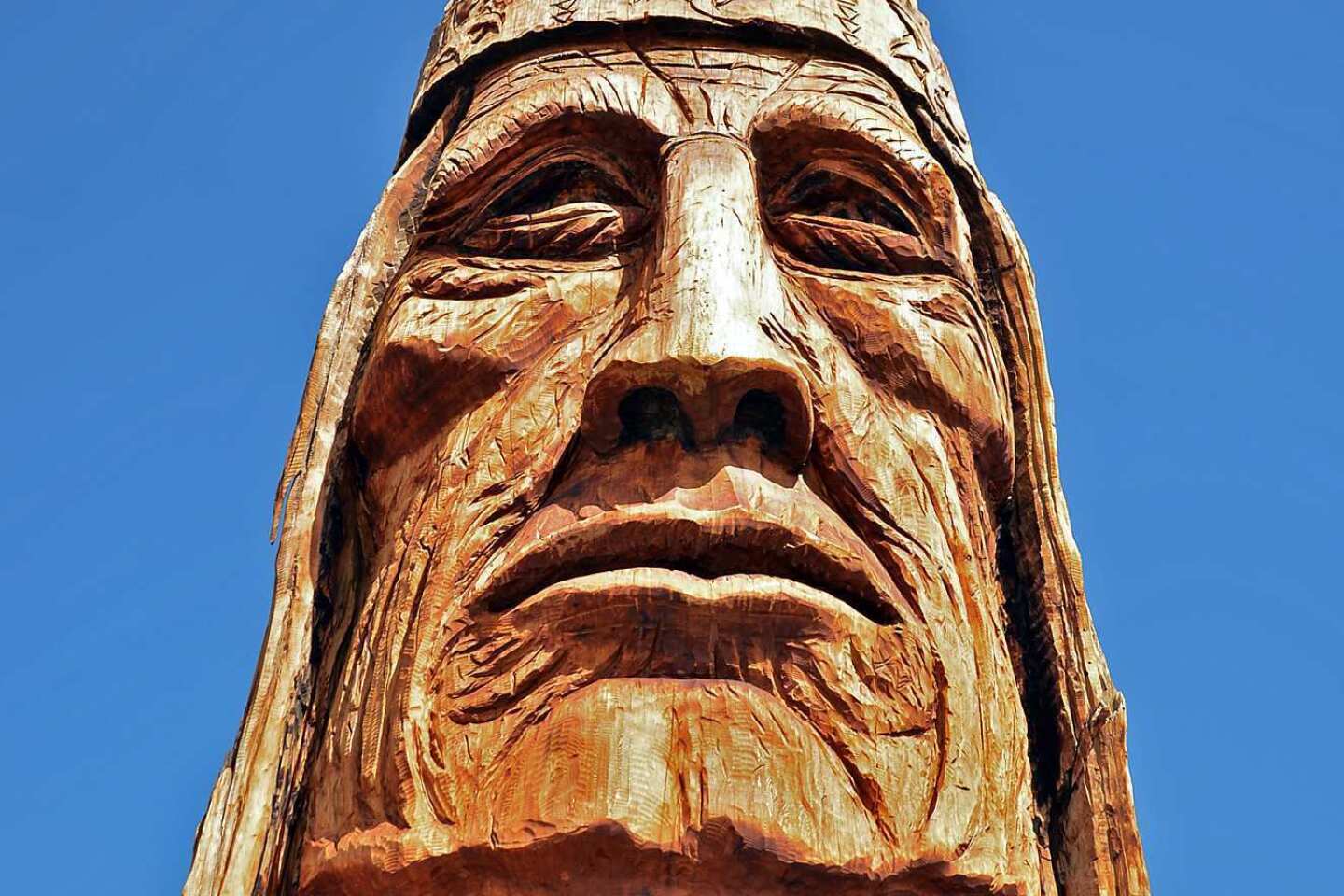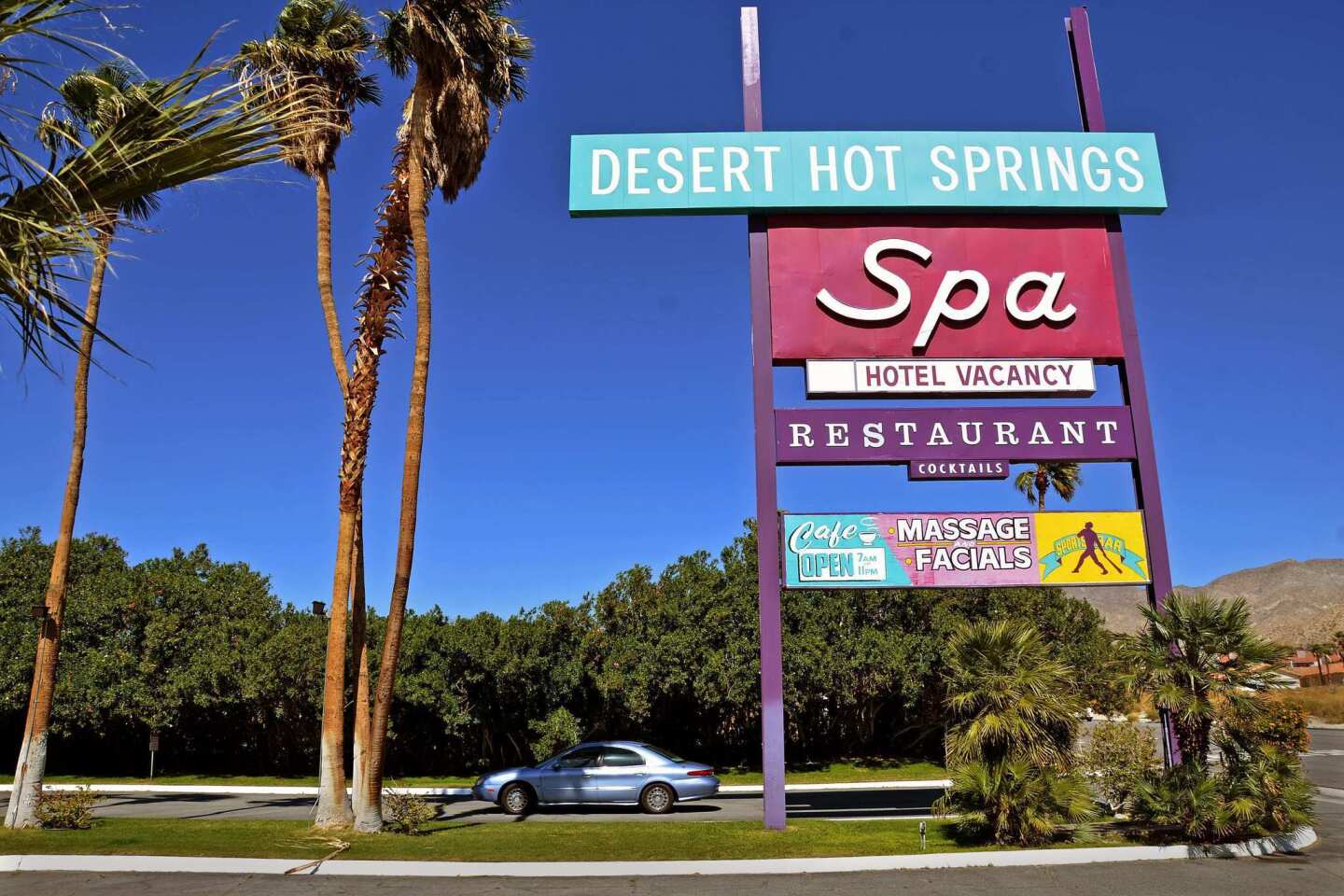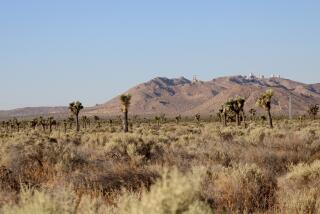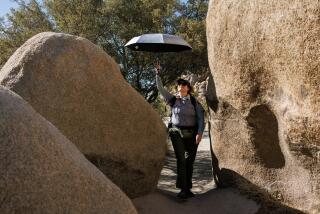Southern California Close-Ups: Joshua Tree National Park and Desert Hot Springs
It’s a dry heat – a boulder-studded, wind-raked Mojave heat, in which rock stars lie low, artists think big, marines train, weird plants jut toward the sun like beseeching biblical figures, and climbers cling to granite walls like insects stuck to flypaper, except the climbers are way happier.
That’s a notable thing about Joshua Tree National Park and the towns around it. While legions of Californians keep their faces to the beach, no matter the season, a certain stripe of traveler is powerless to resist the desert, especially in cooler months. They come for the wide-open spaces and quirky lodgings you see in the park-adjacent towns of Joshua Tree and 29 Palms. They come for the bands at Pappy & Harriet’s, for the steaming pools of lithium-rich water at Desert Hot Springs or maybe for a sound bath (to be explained soon) at the Integratron in Landers.
Here are 11 micro-itineraries for Joshua Tree and environs, a sprawling area that begins about 110 miles east of Los Angeles City Hall, north of I-10. On another day we’ll come back to the desert areas south of I-10, including Palm Springs and its Coachella Valley neighbors.
1. Big rocks, bigger sky
Joshua Tree National Park covers nearly 800,000 acres. No matter the time of year, you’ll enjoy it most in the day’s first and last hours of light, when the shadows get interesting and temperatures change fast. The Mojave and Colorado deserts collide here, and a few billion rocks demand climbing or observation. There are almost as many cartoonish Joshua trees, which are better admired than climbed.
From the park’s west entrance (near the town of Joshua Tree), head to Hidden Valley, a haven for tent-camping, hiking, climbing and scrambling. There’s a 1.1-mile looping nature trail to Barker Dam that’s great for photography, (still water, stacked boulders) and the neighboring Gunsmoke area is beloved by boulderers. Not far from there is Cap Rock. Back in 1973, a few days after 26-year-old Gram Parsons died of a drug overdose in room 8 of the Joshua Tree Inn, his friend Phil Kaufman stole the body from authorities and brought it to Cap Rock for a DIY cremation. It didn’t go well, and rangers continue to discourage this practice. For a healthier interaction with the landscape, try a class from the Desert Institute (www.joshuatree.org), whose recent offerings have included geology and plein air poetry. Wherever you go, bring water.
2. Downtown Joshua Tree
Get your first meal at the Crossroads Café (61715 Twentynine Palms Highway, Joshua Tree) where the bulletin board is liable to mention rock climbers’ chalk bags for sale; mercenaries for hire; and any upcoming drum circles. (At least, it did in February.) For a date shake, walk down to Richochet (61705 Twentynine Palms Highway, Joshua Tree). For gear or a guide, stop at Joshua Tree Outfitters (61707 Twenty-nine Palms Highway, Joshua Tree). There’s also pottery shop, a couple of thrift stores and the Joshua Tree Saloon (61835 Twenty-nine Palms Highway, Joshua Tree), which plays a key role during the Joshua Tree Music Festival (May) and the Joshua Tree Roots Music Festival (October). Across the street, there’s the Instant Karma Yoga Studio, the Mount Fuji General Store (a hipster boutique) and a pizzeria called Pie for the People pizza. If you like a lodging with a little style and don’t need a pool, head for the five-room Spin & Margies Desert Hideaway (64491 29 Palms Highway, Joshua Tree). If you want even higher style (and have more money), there’s the Mojave Sands Motel (62121 Twentynine Palms Highway, Joshua Tree), where owner Blake Simpson has turned a roadside hole-in-the-wall into five room compound with vintage vinyl and a manual typewriter in every room. Though he only opened in 2011 and his bottom price is $200, Simpson hopes to add a pool and bump prices up before the year is over. (Bear in mind also that dozens of Joshua Tree properties are listed on vacation-rental sites like vrbo.com, with widely varying descriptions and prices.)
3. The egg in the boulders
There’s a growing art scene here, and not just within the walls of the Red Arrow Gallery and Joshua Tree Art Gallery on the main drag. Check out the artists of High Desert Test Sites (6470 Veterans Way, Joshua Tree), who make outdoor works that the desert will transform and reclaim. Like the galleries, the headquarters opens on weekends (Saturdays and Sundays, 11 a.m.- 3 p.m.) and one work is always accessible. It’s along Twentynine Palms Highway 1 mile east of Park Drive, on the boulder-strewn slopes at the end of meandering, unpaved Neptune Road. Up close, you may see that “untitled” by Sarah Vanderlip is made of welded aluminum, but from a distance, it gleams like a silvery egg, possibly dropped by a titanium dinosaur.
4. Pappy & Harriet’s
Pioneertown, up on a plateau about five miles north of Yucca Valley, was built in the 1940s as a TV and movie set. Some decades later, along came Pappy and Harriet’s Pioneer Town Palace (53688 Pioneertown Road, Pioneertown), a roadhouse with live music that has become a desert institution. Somehow, Pappy’s gently blends desert-rat locals with escaped city slickers and lures performers you’d never expect in the middle of nowhere. The Pioneertown Motel is right next door. Or, If you’re okay for the drive back to Joshua tree, there’s the 10-room Joshua Tree Inn ( 61259 Twentynine Palms Highway, Joshua Tree), where you can have room 8 (the Gram Parsons death room) for $109. It’s got a pool and a shrine to Parsons.
5. The Integratron
You’re either up for The Integratron (2477 Belfield, Blvd., Landers) or you’re not. It stands about 20 minutes’ drive north of Joshua Tree, a white wooden dome, 38 feet high and 55 feet in diameter, built in the 1950s, ‘60s and ‘70s by renegade aeronautical engineer George Van Tassel (who died in 1978). Van Tassel wanted to contact other worlds. In his absence, a trio of sisters has taken ownership and the building has a new life as a place for meditating, or playing music or just climbing the ladder to the upper chamber, curling up on a blanket and listening for half an hour to hear somebody coaxing eerie, powerfully resonant sounds from a series of quartz bowls. “I call it kindergarten nap time of the third kind,” says co-owner Joanne Karl. But the sign outside says “sound bath.” To bathe alone is $80, by reservation. But two weekends per month, you can join a public sound bath at noon for $15. The sound, bouncing off the rounded walls and trembling through the Douglas fir floorboards, is mesmerizing. Karl estimates that a third of her customers are musicians.
6. The 29 Palms Inn and the town’s murals
The city of 29 Palms stands at the northern entrance to the national park, its population of 30,000 dominated by the Marine Corps Air Ground Combat Center, which readies marines for service overseas. Since the early 1990s, town boosters have bankrolled the painting of about two-dozen historic murals, so as you roll past all the barbershops in town (marine cuts a specialty), you’ll notice a lot of history in living color. For another sort of color, the 29 Palms Inn (73950 Inn Ave., 29 Palms) is a prime haven. The family-run inn, whose rooms, bungalows and cabins are scattered over 70 acres near the park entrance, goes back to the 1920s. If you can swing it, rent Irene’s Historic Adobe, which went up in the ‘30s and has a master bedroom, a bunkroom, kitchen, living room with fireplace and a big private courtyard.
7. Stony haven
In a territory dominated by stray boulders, why is it so surprising to find a house with stone walls? Maybe it’s because Roughley Manor (74744 Joe Davis Dr., 29 Palms), which goes back to 1928, is three stories high and surrounded by equally tall trees. This is a good spot for families, its 25 acres set apart from the rest of town, the grounds including a pool, grassy areas, two suites in the main house and five cottages. While the J-tree hoteliers court the young and trendy, Roughley Manor’s resident owners cater to scrapbooking groups. When your book’s done, it’s a short drive to Smith’s Ranch Drive-In Movie Theatre (4584 Adobe Road, 29 Palms), which still screens movies on Thursday through Sunday nights.
8. Damp and shady at last
After you’ve zoomed down the hill from Joshua Tree but before you reach the windmill forest at the entrance to the Coachella Valley, you reach Big Morongo Canyon Preserve (11055 East Drive., Morongo Valley), where boardwalk trails trace paths past riparian brush and desert willows. More than 250 bird species have been recorded in the area. When you’re done, hop across the highway for grub at Willie Boy’s Saloon & Dance Hall (50048 29 Palms Highway, Morongo Valley).
9. When the time is right, Two Bunch Palms
If you saw Tim Robbins take a mud bath in “The Player” (1992), you’ve seen Two Bunch Palms (67425 Two Bunch Palms Trail, Desert Hot Springs). Set on 56 acres and shaded by palms and tamarisks, this 52-room resort goes back to the earliest days of Desert Hot Springs. It also has a new set of owners -- which is good, because many guests have complained for years about the property’s deterioration. Fortunately, the makings of a great retreat are still here, beginning with the stonework and grotto area that is the heart of the resort. Once those new owners have renovated some rooms, get one near the grotto.
10. The pueblo and the spas
First you’ll see the head -- a 40-foot Indian head with feather, carved from sequoia by artist Peter Toth in 1978. Then you’ll notice the rest of Cabot’s Pueblo Museum (67616 E. Desert View Ave., Desert Hot Springs), a four-level, 35-room mansion built in ersatz Hopi style by Cabot Yerxa, one of the pioneering eccentrics of Desert Hot Springs. To get a good look inside, you sign up for the hourlong tour and learn how Yerxa built the home from recycled materials between 1941 and his death in 1965. Then (because there isn’t a lot in Desert Hot Springs to divert your interest) it’s time for cocooning in a little spa hotel, of which there are several. The seven-room Sagewater Spa (built in 1954, redone in 2001) gives you mid-century minimalism. El Morocco Inn (66810 4th Street, Desert Hot Springs) is a 2005 revival project with 10 rooms, many veils, three round beds and sparkling Trip Advisor ratings for its service. The six-room Hacienda Hot Springs Inn delivers an Old California feel, including an outdoor kitchen, enormous common table, and plenty of books and desert memorabilia. None of these places is good for children or outdoor cellphone chats.
11. Soaked for a pittance
You’re done with the park, your muscles are sore, and your wallet is thin. And so, for just $7 on a Friday, Saturday or Sunday – or $5 on most weekdays – you buy a day pass at the Desert Hot Springs Spa Hotel (10805 Palm Drive, Desert Hot Springs). There, you meander among eight spring-fed pools, each a different temperature. (On Tuesdays, the price drops to $3.). The complex, built in the ‘60s, expanded in the ‘70s and popular with seniors, won’t win prizes for style. But the spa menu is long and families are welcome. You can rent a poolside room for the day (9 a.m. to 4 p.m.) for $45 or spend a night for a little over $100. To go with your cheap soak, grab some hearty, affordable Mexican food a few blocks away at Casa Blanca restaurant (66370 Pierson Blvd, Desert Hot Springs).
More to Read
Sign up for The Wild
We’ll help you find the best places to hike, bike and run, as well as the perfect silent spots for meditation and yoga.
You may occasionally receive promotional content from the Los Angeles Times.
